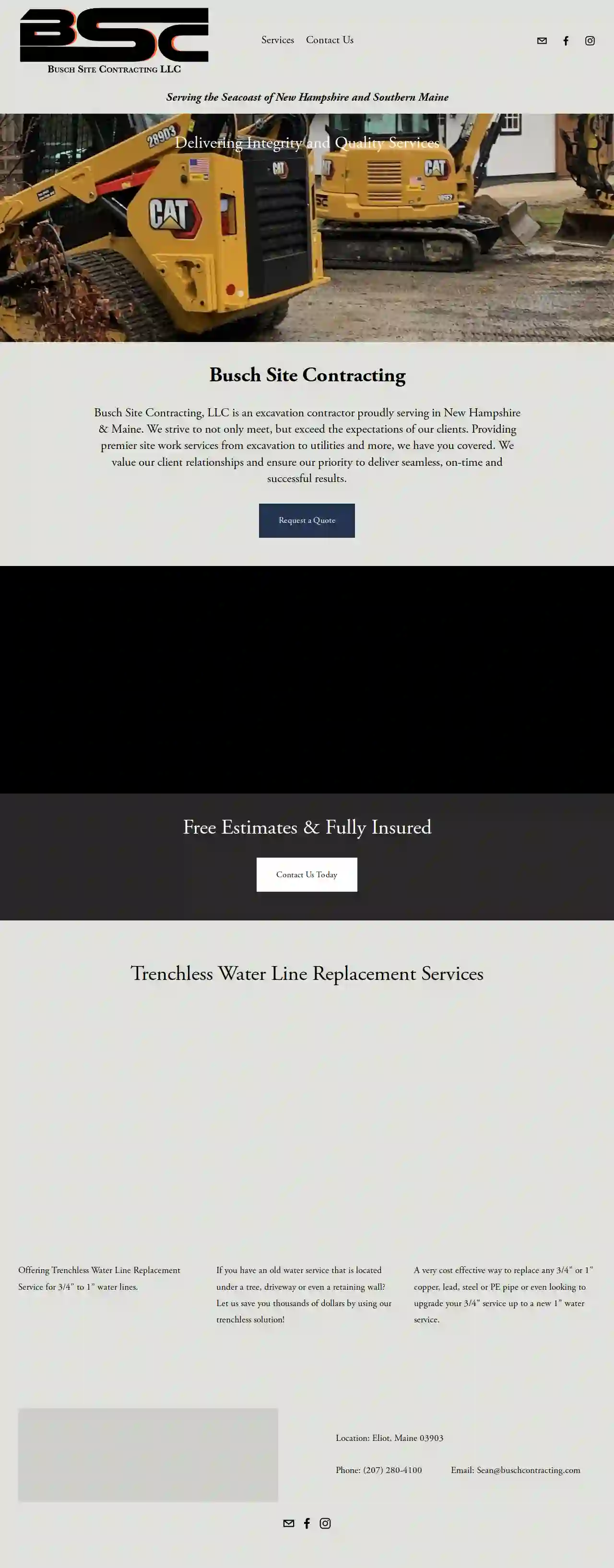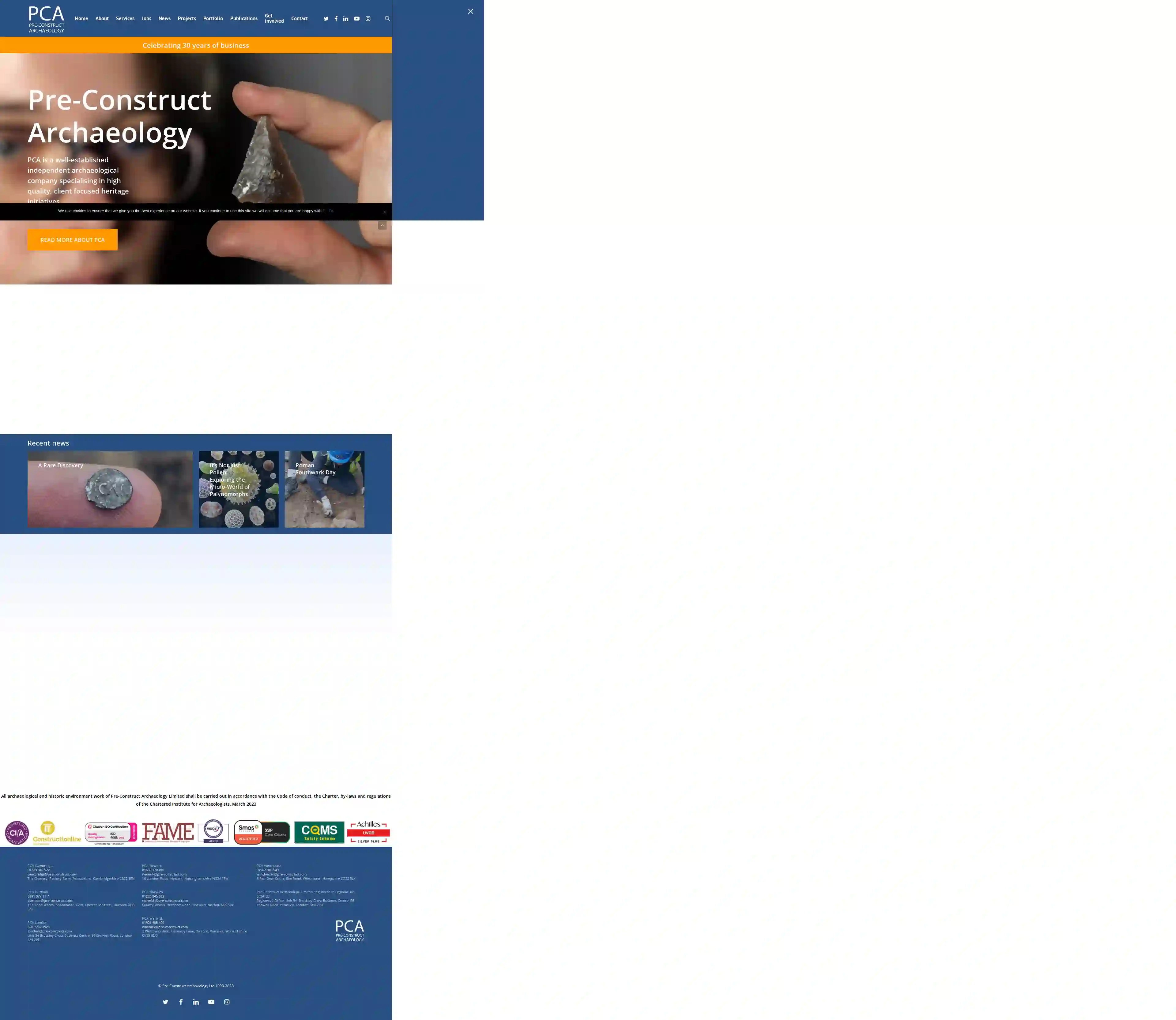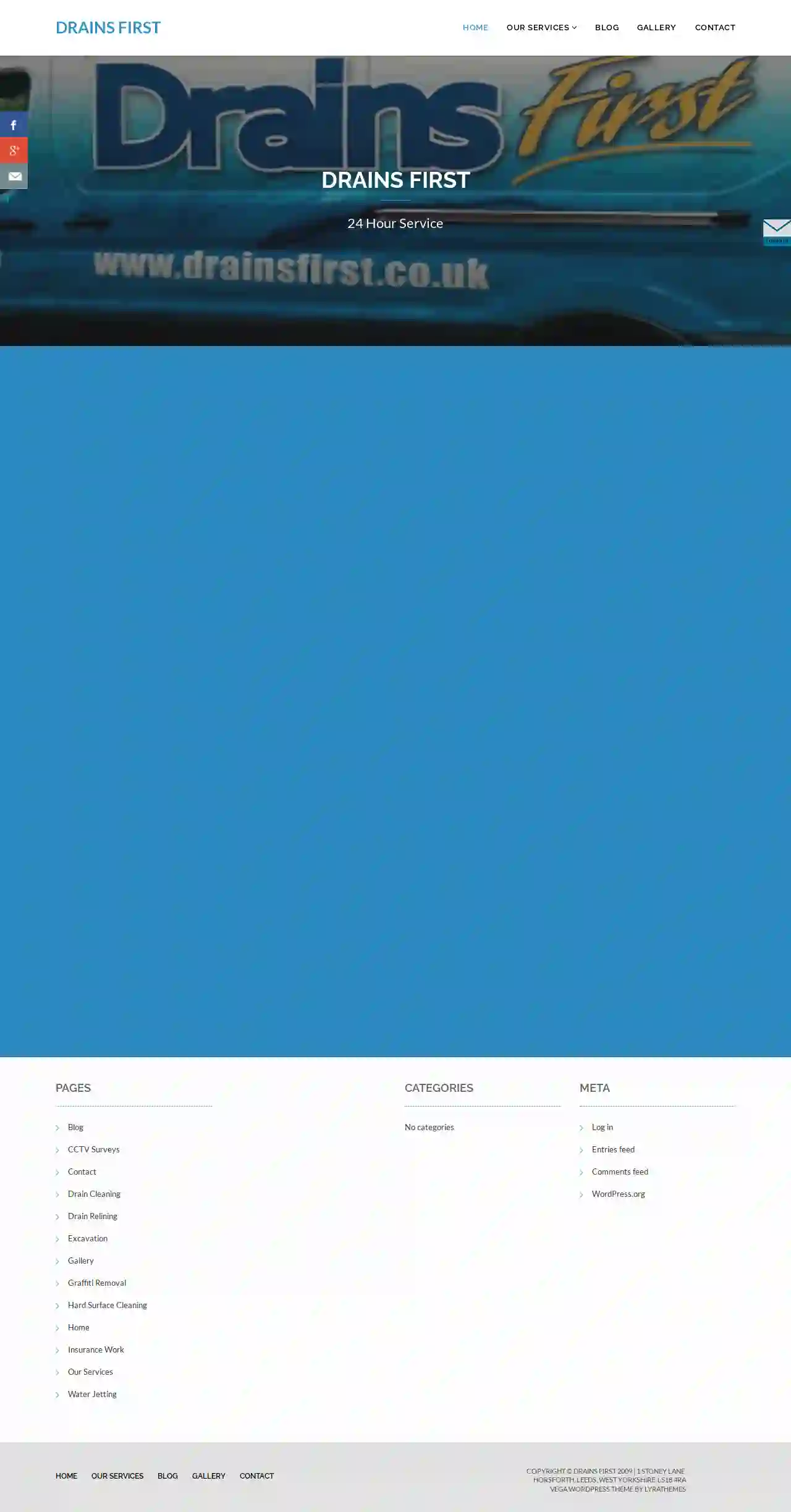Demolition Contractors Wigan
Top Demolition Companies in Wigan
Get multiple Demolition Companies quotes for your project today! Compare profiles, reviews, accreditations, portfolio, etc... and choose the best deal.

Keystone Construction
1Edinburgh, GBWelcome to Keystone Construction A Specialist Groundworks Contractor Based in Scotland About Us Keystone Construction is a professional groundworks contractor, based in Edinburgh and working with partners throughout Scotland. What Keystone Can Do For You At Keystone Construction, we pride ourselves on delivering projects to the highest possible construction standards, in an efficient, cost-effective way. We are accomplished in a diverse range of groundworks specialities including: Groundworks Services We offer a comprehensive range of groundworks services, including: Earthworks / Clearance Site Clearance Bulk Cut & Fill Bulk Soil Import / Export Ground Remediation Foundations Strip, Pad & Raft Foundations Deep Pile Foundations Complex Engineered Solutions Soil Improvements Concrete Works Suspended Floor Slabs Power-Floated Concrete Floors Retaining Walls Formwork, Reinforcing, Placing Plotworks Utility Installation Hard Landscaping Street Lighting Roads / Drainage / SUDS Road Formation & Surfacing SUDS Ponds All Concrete, Plastic & Clay Piping Deep Drainage & Access Chambers Building Blockwork & Underbuilding Superstructure Brick & Blockwork For Housing Developments If your next project requires any of the services above, feel free to get in touch to discuss your specific needs. Experience Matters Specialists in Complex Projects The team at Keystone Construction has a wealth of experience in delivering complex groundworks projects. We take pride in our ability to work in tight and confined spaces, for example, on sites in close proximity to water, sites with impeded access and projects involving listed buildings in areas of historical significance. This experience, together with a continuing investment in the latest plant, machinery & technology, makes Keystone Construction a compelling choice when it comes to complex groundworks projects.
- Services
- Why Us?
- Gallery
Get Quote
Masterhitch Europe Ltd
51 reviewsWhitewall Centre, Whitewall Road, Strood, Kent, ME2 4DZ, GBMasterhitch are leaders in the design and manufacture of a large range of excavator attachments, excavator buckets and parts for construction, earth-moving and demolition. Masterhitch are proud of their dedication to and quality of their products, with safety lying at the heart of all designs and products. The Masterhitch Hooker Hitch is the safest quick hitch in the world, specifically designed for ease of use as well as security, ensuring a bucket or attachment is impossible to drop off unintentionally when attached. Excavator buckets, attachments, guards and hitches can be manufactured to fit all makes and size of diggers and excavators. Masterhitch provide an extensive range of buckets and attachments including reversible forks, cradles, grapples, handlers, claws and rippers. Ram Guards can dramatically reduce the cost and downtime of repairing your machines rams. Masterhitch also provide expert bespoke design, repairs, cutting and manufacturing for client’s individual needs. The team of highly specialised and experienced staff can advise you on the right attachment or bucket for whatever your need.
- Services
- Why Us?
- Accreditations
- Gallery
Get Quote
Busch Site Contracting, LLC
1Eliot, 03903, GBBusch Site Contracting Busch Site Contracting, LLC is an excavation contractor proudly serving in New Hampshire & Maine. We strive to not only meet, but exceed the expectations of our clients. Providing premier site work services from excavation to utilities and more, we have you covered. We value our client relationships and ensure our priority to deliver seamless, on-time and successful results. Free Estimates & Fully Insured Contact Us Today
- Services
- Why Us?
- Gallery
Get Quote
Paul Smith Earthmoving Ashburton
51 reviews100 Clyde Street, Alexandra, 9300, GBLaying the groundwork for a better tomorrow Paul Smith Earthmoving is a leading civil construction company based in the South Island of New Zealand. We specialize in a wide range of services, including earthmoving, excavation, demolition, drainage, construction, contaminated site remediation, track and road maintenance, landscaping, rock supply, landfill management, trucking, and transport works. We have a strong reputation for delivering high-quality, well-managed contracts designed for full client satisfaction. Our team is dedicated to delivering with integrity, as agreed, every time. We complete jobs ranging in scope from residential charge-up works requiring an in-house design, through to fully scheduled commercial tenders with engineered plans. We are powered by 180+ highly skilled staff, all well equipped with a range of advanced plant, equipment, and technology to ensure industry-leading delivery. Our strong reputation is built on a foundation of close client relationships and an outstanding track record in all aspects of civil construction. We have effectively delivered both small and large-scale projects under a range of challenging conditions. Our innovative team is dedicated to delivering with integrity, as agreed, every time.
- Services
- Why Us?
- Gallery
Get Quote
Pre-Construct Archaeology
4.29 reviewsThe Granary, Rectory Farm, Pampisford, Cambridgeshire, Cambridge, CB22 3EN, GBCelebrating 30 years of business Pre-Construct Archaeology PCA is a well-established independent archaeological company specialising in high quality, client focused heritage initiatives. READ MORE ABOUT PCA Discover our services PCA provides the full range of archaeological and built heritage services in all public and private sectors, such as property development, transport and renewable energy. We are able to undertake work anywhere in the UK, including contaminated sites. See our projects Get in touch With offices in Cambridge, Durham, London, Newark, Norwich, Warwick, and Winchester, we can help with your heritage requirements. Get in touch with Pre-Construct Archaeology in your local area or contact our general enquiries for advice.
- Services
- Why Us?
- Testimonials
- Gallery
Get Quote
Boston Transport Planning
53 reviewsChester, GBBoston Transport Planning We are a team of experienced transport planners and consultants who provide a wide range of services to help our clients achieve their transport planning goals. We have a proven track record of success in delivering high-quality, cost-effective solutions that meet the needs of our clients and the communities they serve. Our services include: Transport Statements Transport Assessments Travel Plans Sustainable Transport Strategies Traffic Management Plans Pedestrian and Cycle Strategies Public Transport Assessments Parking Strategies Development Planning We are committed to providing our clients with the highest level of service and expertise. We work closely with our clients to understand their needs and develop tailored solutions that meet their specific requirements. We are also committed to sustainability and strive to deliver solutions that minimize the environmental impact of transport. If you are looking for a transport planning consultancy that can help you achieve your goals, please contact us today.
- Services
- Why Us?
- Gallery
Get Quote
London & City Contracts Ltd
1Unit 1, Wanstead, London, E11 2LW, GBBuilding Projects and Relationships since 1998. LCCL. With you all the way Welcome to London & City Contracts London's Specialist Building and Refurbishment Company Providing Quality Services and Value To Private and Commercial Clients since 2002 Your Challenge - Our Solution L&C Contracts are an established Property Refurbishment company providing the highest levels of quality, service and value to private and commercial clients in London and the South of England. Our Mission Our mission at L&C Contracts is to provide our clients with exceptional quality services, finished to the highest possible standards. You win trust with hard work and customer satisfaction. The high level of repeat business that we gain is a true testimonial to the standards we maintain and the promises that we keep. New Build& Refurbishments Specialist Design We work with some of the most highly regarded Architects, designers and specialists to complete high quality new build and refurbishment projects. Our Approach Our approach is based on listening to our clients. We will help steer, develop and support your drive to realise your vision. Delivery We will deliver your project no matter how complex on time and within budget to the highest possible standards. Our Motto 'Your Challenge - Our Solution'
- Services
- Why Us?
- Gallery
Get Quote
Plant Hire Now Ltd - Mini Digger Hire Birmingham
4.715 reviewsBirmingham, GBWelcome to planthirenow.co.uk We have trained operatives that can excavate and dig to your projects requirements. Experts in the supply of both man and machine hire.You can also hire our mini diggers on their own. Our prices and service won’t be beaten. What we offer With 30 years in the trade, we know that our customers want a simple transparent pricing system. So that’s we have done – the price you see is the price you pay. No hidden charges, no disclaimers and nothing to catch you out or off guard. Who we are At planthirenow.co.uk, we know that your time is of the essence and we also know that our customers want a service that is cost effective. We believe our diggers and excavators are available to hire at the cheapest prices on the net – not only that but if you’re local – in many cases we can deliver the equipment you require to you the very next day.We specifically cover Birmingham and it’s surrounding areas – this is because we own all of our mini diggers and plant hire equipment and as a result we can offer all of our customers the best prices with the swiftest of deliveries.We offer a range of services including site clearances, ground leveling, ground excavations etc. Whatever application you require a digger for – we have qualified drivers to operate and carry out tasks to your exact requirements and instruction. HIRE A DIGGER AND AN EXPERIENCED DRIVER FOR YOUR PROJECT We provide a comprehensive plant and machinery hire service, specialising in the hire of not only our plant equipment but also an operator. For £200* per day our equipment plus a driver can be hired.This will provide you with a highly experienced plant operative that will absolutely ensure that your job is completed efficiently, rapidly and to the very highest of professional standards. Hiring both the equipment and driver will speed up your project considerably and result in making the job safer and a lot more efficient.Whatever your requirements are, we can cater for them. If you know what you’re doing and would like to hire our machines – no problem! Want a swimming pool installed and need an experienced operative and excavator – we can help you there too. We can cater to your every need.Our operated plant hire service is available to each and every one of our customers whether it be for a day or 3 months. We constantly aim to provide the most convenient, cost effective and the high standard of service possible.We offer a fantastic service, seven days per week. Our modern mini digger machines are kept in excellent condition and our professional and highly experienced drivers will ensure that you receive a fantastic personal service at all times. Our Process IT'S EASY TO HIRE FROM US Why choose us Birmingham's #1
- Services
- Why Us?
- Gallery
Get Quote
Drains First Ltd
4.824 reviews1 Stoney Lane, Horsforth, Leeds, West Yorkshire, LS18 4RA, GBDrains First provides emergency and planned maintenance service to commercial and domestic clients. We have over 30 years experience in drain maintenance and drain repair, all our technicians are friendly and professional, our methods are modern and efficient. We have a full range of modern drain cleaning equipment capable of cleaning any pipes and drains from a household sink to a 12″ sewer. All our vehicles are fitted with on board High Pressure Water Jetting Machines. Water jetting allows us to use high pressure water jets to clear blocked drains without the need for chemicals that can damage the environment. Drains First are specialists in CCTV surveys of drains, our highly qualified technicians can quickly identify problems such as blockages and damage without the need to dig into the ground to inspect the drain. Our engineers are extremely experienced in relining and excavation work with minimal disruption to the customer. Graffiti is an on going problem that can be unsightly, graffiti can be cleaned from most surfaces with the best possible results without unnecessary shadows. For examples of our work please visit our gallery.
- Services
- Why Us?
- Gallery
Get Quote
Creative Landscapes - Landscaping Services Southport
518 reviewsChester, GBCreative Landscapes Southport At Creative Landscapes, we are passionate about turning ordinary outdoor spaces into extraordinary landscapes. We specialize in crafting outdoor environments that are both aesthetically stunning and functionally practical. More About Us We understand that creating your dream landscape is an investment. That's why we offer hassle-free financing options designed to make your vision achievable without breaking the bank. Experience the convenience of expert guidance right at your doorstep. Our complimentary at-home consultations are designed to bring our landscape expertise directly to you. Our dedication to precision and attention to detail sets us apart. With skilled artisans at the helm, we craft landscapes that not only meet but exceed your expectations. Your trust is our priority. We are fully licensed and insured, giving you the confidence that your project is in capable hands with our commitment to safety and professionalism.
- Services
- Why Us?
- Testimonials
- Gallery
Get Quote
Over 3,630+ Excavation Contractors on our directory
Our excavation contractors operate in Wigan and surroundings!
ExcavationHQ has curated and vetted Top Excavation Contractors in Wigan. Find a trustworthy contractor today.
Frequently Asked Questions About Demolition Contractors
- Feasibility Studies: Assessing the viability and challenges of a demolition project.
- Demolition Planning: Developing demolition plans, including method selection, sequencing, and safety procedures.
- Permitting Assistance: Navigating the demolition permitting process and ensuring compliance with regulations.
- Hazardous Material Surveys: Identifying and managing hazardous materials, such as asbestos and lead paint.
- Cost Estimating: Providing accurate cost estimates for demolition services.
- Project Management: Overseeing the demolition process and ensuring it proceeds as planned.
- Project Assessment: The demolition contractor evaluates the structure, site conditions, and project requirements.
- Permitting: Obtain necessary demolition permits from local authorities.
- Site Preparation: Secure the site, disconnect utilities, and remove any valuable or reusable items.
- Hazardous Material Abatement: Professionally remove asbestos, lead paint, or other hazardous materials if present.
- Demolition: Execute the chosen demolition method, bringing down the structure safely and efficiently.
- Debris Removal and Site Cleanup: Sort, process, and dispose of demolition debris responsibly. Clean up the site to prepare it for future use.
- Size and Type of Structure: The method should be suitable for the structure's size, height, and construction materials.
- Site Location and Accessibility: The method should be feasible given the site's location, surrounding buildings, and access constraints.
- Environmental Considerations: Prioritize methods that minimize environmental impact, such as deconstruction or selective demolition if feasible.
- Budget: Different demolition methods have varying costs, so choose one that fits your budget.
- Safety: Prioritize methods that ensure worker safety and minimize risks to surrounding areas.
- General Liability Insurance: Covers bodily injury or property damage to third parties caused by the contractor's negligence.
- Workers' Compensation Insurance: Provides benefits to workers injured on the job.
- Pollution Liability Insurance: Covers costs associated with environmental contamination caused by demolition activities.
- Professional Liability Insurance: Protects against claims of negligence or errors in professional services, such as demolition planning or consulting.
What is the role of a demolition consultant?
What are the steps involved in a typical demolition process?
How do I choose the right demolition method for my project?
What is the importance of insurance in demolition projects?
What is the role of a demolition consultant?
- Feasibility Studies: Assessing the viability and challenges of a demolition project.
- Demolition Planning: Developing demolition plans, including method selection, sequencing, and safety procedures.
- Permitting Assistance: Navigating the demolition permitting process and ensuring compliance with regulations.
- Hazardous Material Surveys: Identifying and managing hazardous materials, such as asbestos and lead paint.
- Cost Estimating: Providing accurate cost estimates for demolition services.
- Project Management: Overseeing the demolition process and ensuring it proceeds as planned.
What are the steps involved in a typical demolition process?
- Project Assessment: The demolition contractor evaluates the structure, site conditions, and project requirements.
- Permitting: Obtain necessary demolition permits from local authorities.
- Site Preparation: Secure the site, disconnect utilities, and remove any valuable or reusable items.
- Hazardous Material Abatement: Professionally remove asbestos, lead paint, or other hazardous materials if present.
- Demolition: Execute the chosen demolition method, bringing down the structure safely and efficiently.
- Debris Removal and Site Cleanup: Sort, process, and dispose of demolition debris responsibly. Clean up the site to prepare it for future use.
How do I choose the right demolition method for my project?
- Size and Type of Structure: The method should be suitable for the structure's size, height, and construction materials.
- Site Location and Accessibility: The method should be feasible given the site's location, surrounding buildings, and access constraints.
- Environmental Considerations: Prioritize methods that minimize environmental impact, such as deconstruction or selective demolition if feasible.
- Budget: Different demolition methods have varying costs, so choose one that fits your budget.
- Safety: Prioritize methods that ensure worker safety and minimize risks to surrounding areas.
What is the importance of insurance in demolition projects?
- General Liability Insurance: Covers bodily injury or property damage to third parties caused by the contractor's negligence.
- Workers' Compensation Insurance: Provides benefits to workers injured on the job.
- Pollution Liability Insurance: Covers costs associated with environmental contamination caused by demolition activities.
- Professional Liability Insurance: Protects against claims of negligence or errors in professional services, such as demolition planning or consulting.